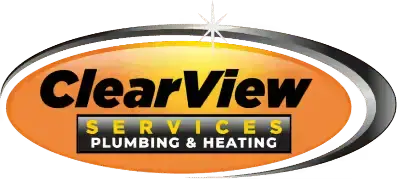How to Avoid Costly (and Dangerous) Consequences of Playing Plumber!
With the dawn of YouTube and Pinterest, most of us have tried—and failed—at a DIY project or two (or 27). Regardless of our past “nailed it” moments, we’re nevertheless tempted to take DIY to a new level when we think it’ll save us serious cash – plumbing problems included.
OK, maybe you haven’t made that mistake, but plenty of your Calgary neighbors have – and we’d love to help you avoid doing the same. Here are eight of the worst plumbing mistakes DIYers make.
DIY Plumbing Mistake #1: Lack of Planning
Whether it’s an easy project that’s been on your to-do list for months or a large-scale bathroom renovation, you need to spend sufficient time in the planning phase. And there are a lot of factors to consider. For example:
- Too many fixtures can lead to low water pressure.
- Not enough space between the toilet and the bathtub creates some uncomfortable situations or Twister-worthy contortions.
- Taking something apart without paying attention to how all the pieces fit together can lead to a frustrating jigsaw puzzle on the back end of your project. (Pro planning tip: Take a picture before you start disassembling anything.)
DIY Plumbing Mistake #2: Unpermitted Work
Sometimes your local government needs to be involved in your planning! Failing to obtain the proper permits for your fix-it adventures can devalue your home and lead to hefty fines. (And weren’t you trying to save money?) Permits help keep your family and your neighbors safe by allowing local building officials to oversee your home improvement projects. If you’re using a contractor, insist they pull permits, too. Cutting corners rarely cuts costs in the long run.
DIY Plumbing Mistake #3: Wrong Tools
So, you wouldn’t try to nail a screw right? (Well, maybe you would, but most people wouldn’t.) Using the wrong tool for a job can cause frustration, at best – and serious damage, at worst. Most plumbing jobs require basic tools like a plumber’s wrench, basin wrench, and plumber’s snake. Hand augers – long, stiff cables to remove clogs – are also a helpful tool. It’s important to do your research before adding these tools to your collection though, because there are various types of augers and snakes for different fixtures. Another pro tip: Some equipment is better rented than owned. Research and rent accordingly, so you get the most for your dollar.
DIY Plumbing Mistake #4: Mismatched Pipes
Many DIYers don’t know what kind of pipes they have, and they end up mixing galvanized and modern copper pipes. This leads to corrosion, leaks, and expensive future repairs. Matching the materials between existing and replacement pipes is necessary for a successful fix-it project. Researching what kind of pipe you need to replace and any needed connections is a good place to start. And don’t try to just “make it work” with tape, silicone, or other sealants (Pipe corrosion doesn’t care what kind of tape you have).
DIY Plumbing Mistake #5: Over-Tightening Connections
While you may want to show off your Hercules-like strength, making a tighter connection doesn’t prevent a leaky pipe. It actually creates them. Damaged fittings, broken plastic washers, stripped threads, and cracked fittings create these leaks rather quickly. Save your strength for opening those pesky pickle jars! Begin with hand-tightening your connections, then making small turns just until the connection is secure.
DIY Plumbing Mistake #6: Forgetting to Shut-Off the Water
Before attempting your plumbing project, turn off the water! Skipping this step could result in a surprise indoor swimming pool—and some major water damage. Turn off the water at the local shut off valve or to your entire house via the water main. It’s not a bad idea to drain the pipes, too. Flush water down the drain for a few seconds or give the toilet a final flush to ensure you won’t need floaties in your kitchen or bathroom.
DIY Plumbing Mistake #7: Too Much Drain Cleaner
We know drain cleaner seems like a quick fix for the standing water in your shower. However, overusing drain cleaners can severely damage your pipes. Instead of chemicals, try a more natural, less expensive solution: vinegar and baking soda. Or get your hands on a plunger or drain snake. A clean (and non-corroded) drain is a happy drain.
DIY Plumbing Mistake #8: Refusing to Admit Defeat
If you find yourself in over your head, give us a call. We have the knowledge, skills, licenses, tools, and experience to handle your DIY disasters. We’d been Calgary’s preferred plumber for years, and we’d love to serve you, too.






